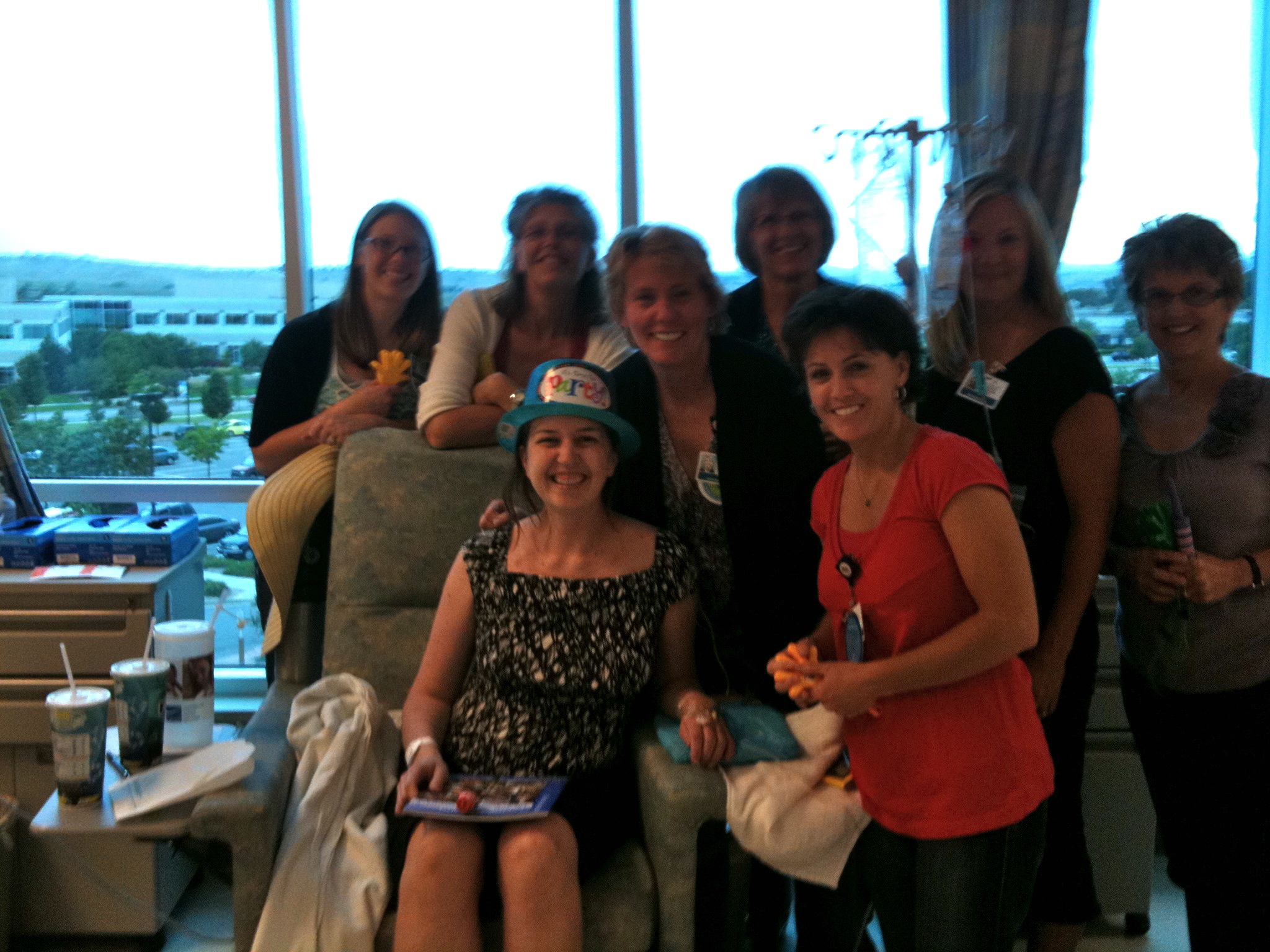Draft written by Shannon and posted by her mom, Gretchen.
Obviously, by now people know that anyone can get cancer. Young, old, cancer doesn’t care. However, what people may not realize is how different an experience getting cancer is depending on your age and life circumstances.
If you are very young, under 18 or 21, you will likely go to a children’s hospital, or at the very least see a pediatric oncologist (supposing that there is one in your area). Children typically get different types of cancers than adults, to the point that if an adult gets a pediatric cancer, they might actually be seen by pediatric oncologists, even if they are older.
While adults of all ages might see the same oncologists, the experiences young adults have are typically quite different from those of older patients. And young adult experiences will differ by their life circumstances: do they have a committed partner? Kids? A wide group of friends and family who are stable enough to help support them?
For Alicia, she was in her very early 20s when she was diagnosed. She had a boyfriend, who was wonderful, but early-20s-boyfriends often don’t work out for reasons other than cancer, as was her case. Then, you have to navigate dating with cancer. She wrote so eloquently about things like, “When do you tell someone you have cancer? Is it fair to keep it from them so they can get to know *you*, or should you tell them right away, since it is such a big deal?” It’s hard enough to navigate the dating scene, let alone with the addition of a terminal diagnosis.
Not having a stable partner also affects what kind of support you can rely on. For me, I know I will always have Peter as my rock (because he had NO idea how serious Life was going to make the “in sickness” part of our vows!). Other young people who don’t have a spouse, or other similarly dedicated partner, don’t have that kind of person to rely on, so they either have to do a lot more on their own, or rely on their friends and family to help.
The movie 50/50, with Joseph Gordon-Levitt, Seth Rogen and Anna Kendrick, did a great job of portraying what it’s like to he a young person with cancer. From being the youngest person in the treatment room by decades, to unfeeling doctors delivering bad news, to how cancer affects all kinds of relationships… it’s an excellent movie that didn’t really get the attention it deserved (Anna Kendrick does play the worst therapist in the world, which she apparently even said herself! Other than that, it’s great.)
One area where it’s clear that cancer treatment is designed for the older patient is in terms of treatment. Most treatments take a LONG time. Since many cancer patients are already retired, this doesn’t really affect them that much, but for young people, the vast majority of whom are working, it’s a lot tougher. When I was doing interferon, I had to be there every single weekday for my infusion. My doctor has said it would only be a 20 minute infusion, but what he didn’t realize was that the 20 minutes was only for the interferon. I also needed a liter of saline before AND after the interferon. By the end, when my veins were so mad at me and I could take the infusions only very, very slowly, the whole thing was taking up to 5 hours or more. I was on maternity leave, but if I hadn’t been, I would have had to take a leave of absence or something in order to get my treatments!
Even if the infusions had been short, most of the time you need a ride to and from the treatment. This probably isn’t too tough for older people, who likely have a decent support network of family and friends, but it can be almost impossible for young people, whose friends and family might have to be at work themselves! I was *incredibly* lucky that during my interferon when Peter had to go back to work, many of my friends were grad students and so had slightly more flexible schedules than your average bear. Even then, I sometimes needed to rely on friends of friends, or other people I didn’t actually know before then. (Many places do have volunteers that can help patients to and from appointments, but these are almost always retirees, which can increase that feeling of isolation for young people).

Celebrating Shannon’s last infusion 2011
